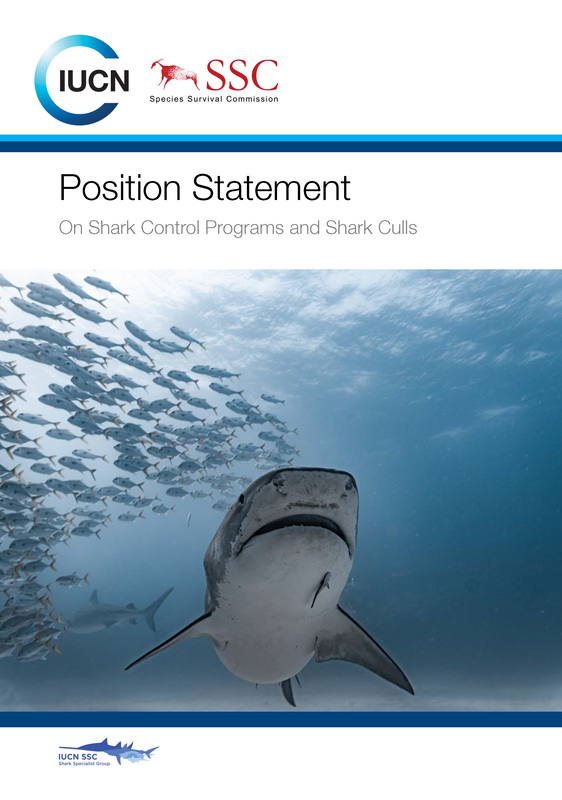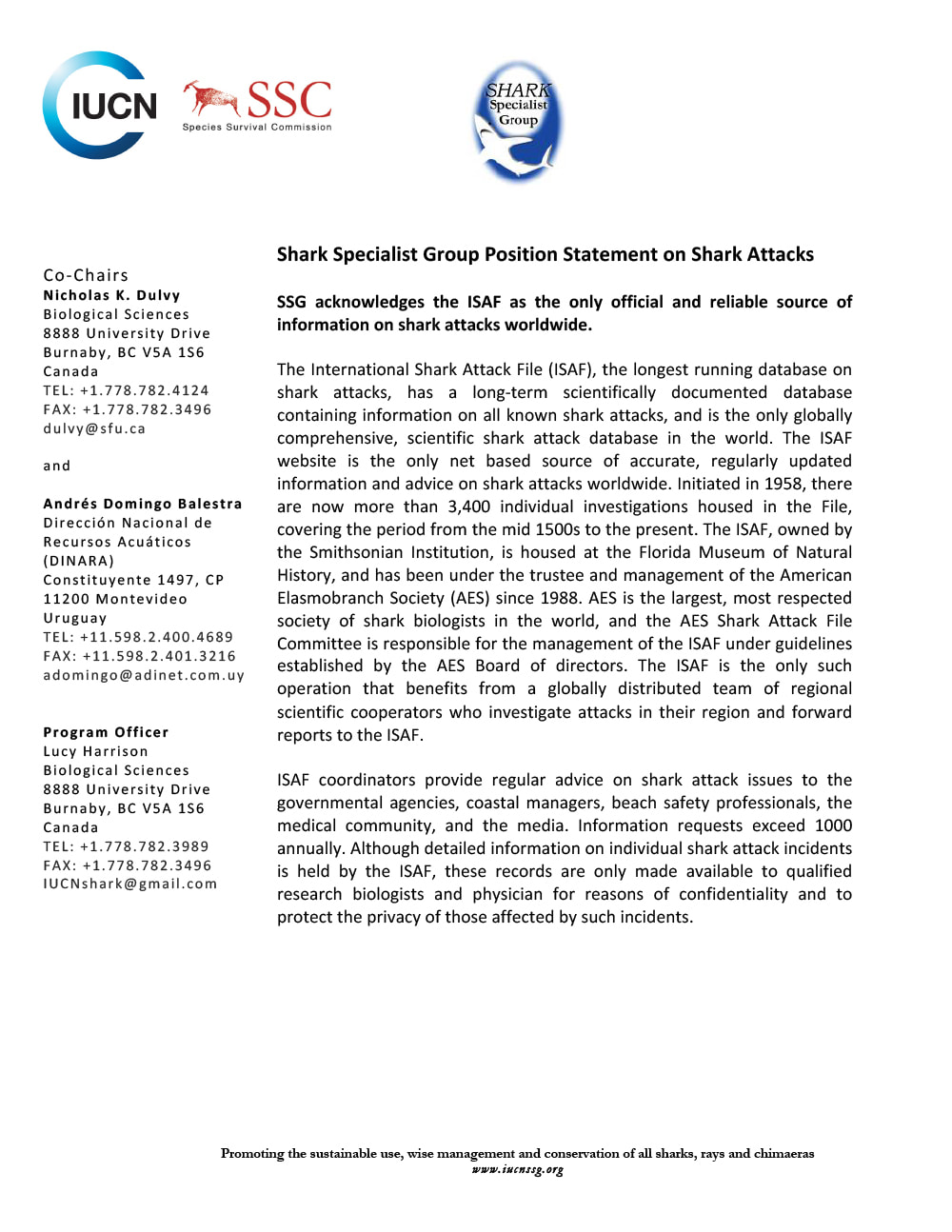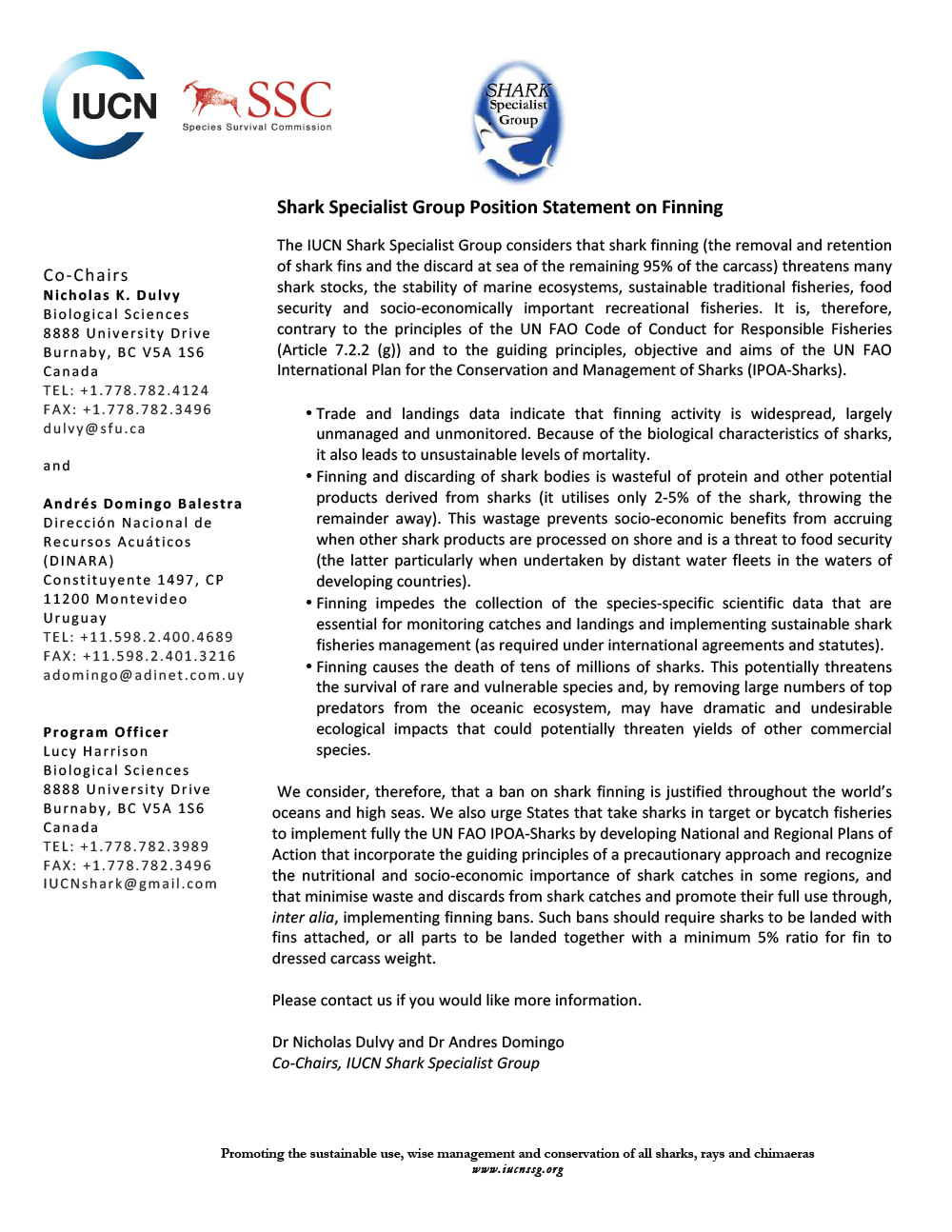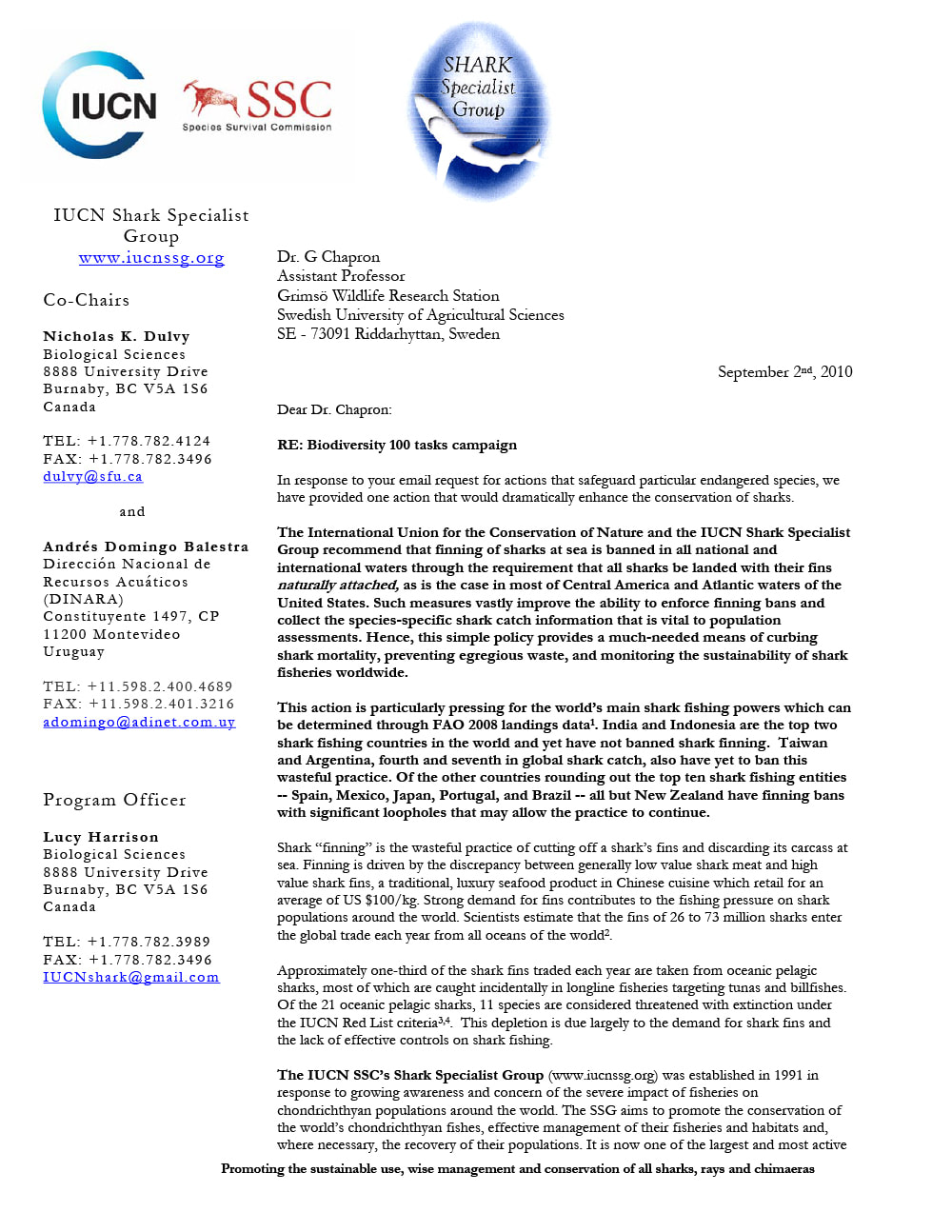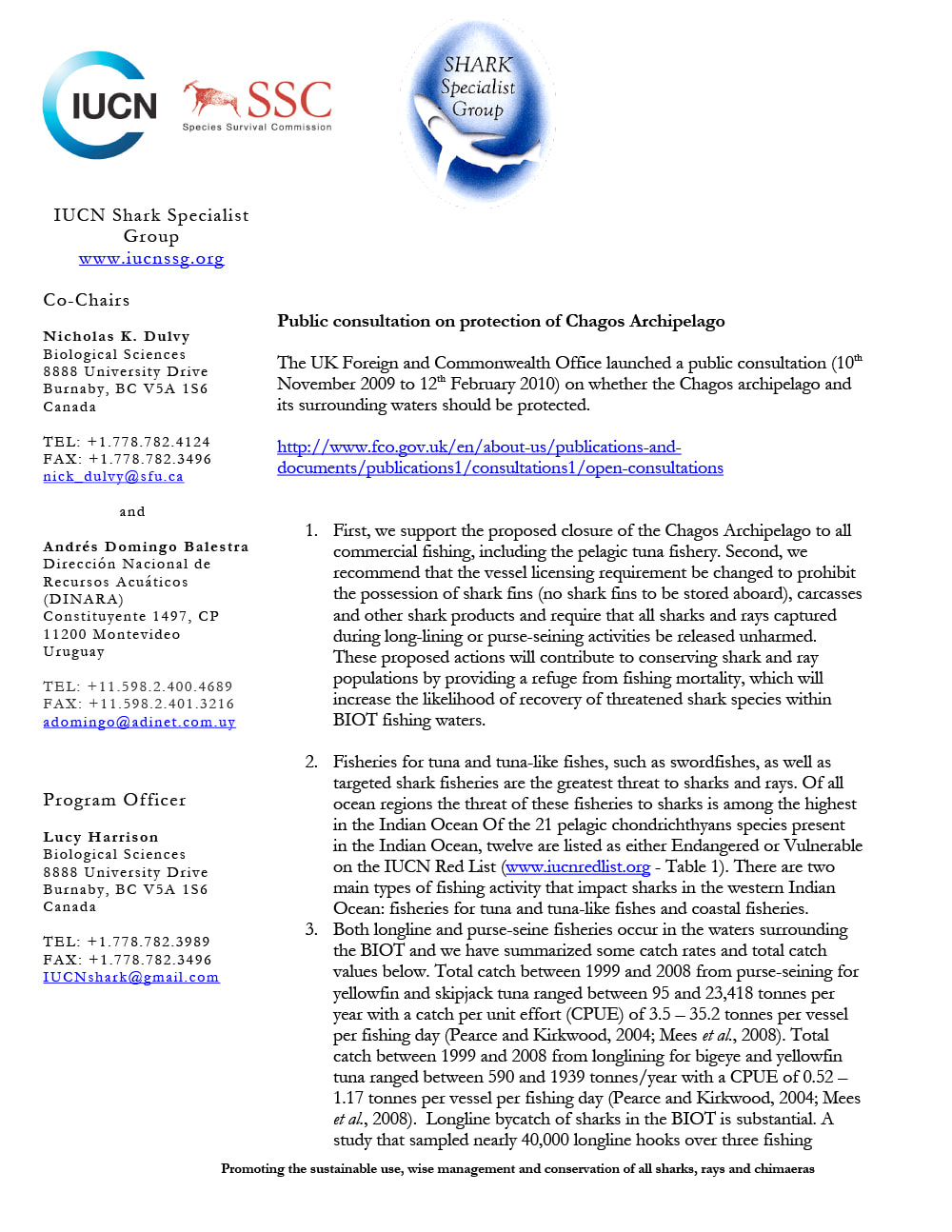SSG Statements
|
Shark specialist Group Position Statement on Shark Control Programs and Shark Culls
2023 The IUCN Species Survival Commission (SSC) is aware that lethal approaches to reducing the risk of human-shark interactions are increasingly being adopted around the world. Several governments either have active shark control programs (i.e., bather protection programs) or frequently implement shark culls in response to actual or perceived risk to humans. Hereby, the SSC outlines its position in relation to existing shark control programs and culls and provides context to allow managers and governments to make informed decisions when faced with delicate situations. We strongly encourage non-lethal approaches as a response and management option. |
|
Shark Specialist Group Position Statement on Shark Attacks
2011 SSG acknowledges the ISAF as the only official and reliable source of information on shark attacks worldwide. The International Shark Attack File (ISAF), the longest running database on shark attacks, has a longterm scientifically documented database containing information on all known shark attacks, and is the only globally comprehensive, scientific shark attack database in the world. The ISAF website is the only net based source of accurate, regularly updated information and advice on shark attacks worldwide. |
|
Shark Specialist Group Position Statement on Finning
2011 The IUCN Shark Specialist Group considers that shark finning (the removal and retention of shark fins and the discard at sea of the remaining 95% of the carcass) threatens many shark stocks, the stability of marine ecosystems, sustainable traditional fisheries, food security and socio-‐economically important recreational fisheries. It is, therefore, contrary to the principles of the UN FAO Code of Conduct for Responsible Fisheries (Article 7.2.2 (g)) and to the guiding principles, objective and aims of the UN FAO International Plan for the Conservation and Management of Sharks (IPOA-Sharks). |
|
Advice Document on Biodiversity 100
2010 The goal of this project was to compile a list of 100 actions that, if implemented, would have an immediate effect on slowing down biodiversity loss in G20 countries. The SSG was asked to contribute an action that (1) would contribute to the safeguard of a particular endangered species or ecosystem, (2) was politically costly to implement or opposed by some interest groups, (3) strongly and widely supported by peer-reviewed scientific evidence. More information here. |
|
Advice Document on the Benefits of a No-Take Marine Reserve to Sharks in the Chagos Archipelago
2010 The UK Foreign and Commonwealth Officer launched a public consultation (10th November 2009 - 12th February 2010) on whether the Chagos Archipelagio / British Indian Ocean Territory and its surrounding waters should be protected. |

